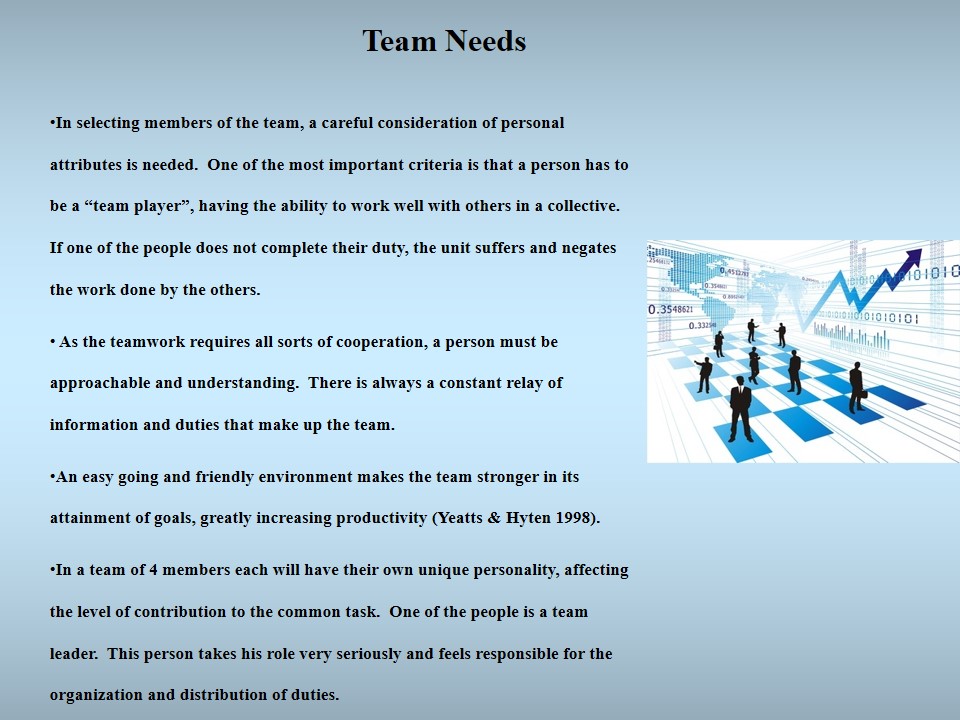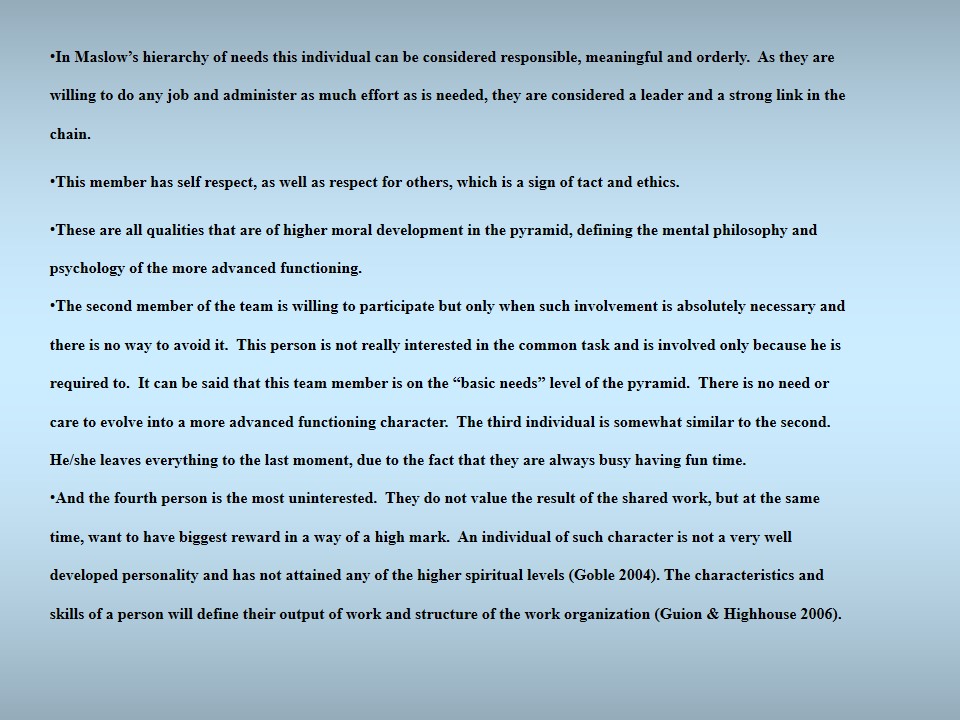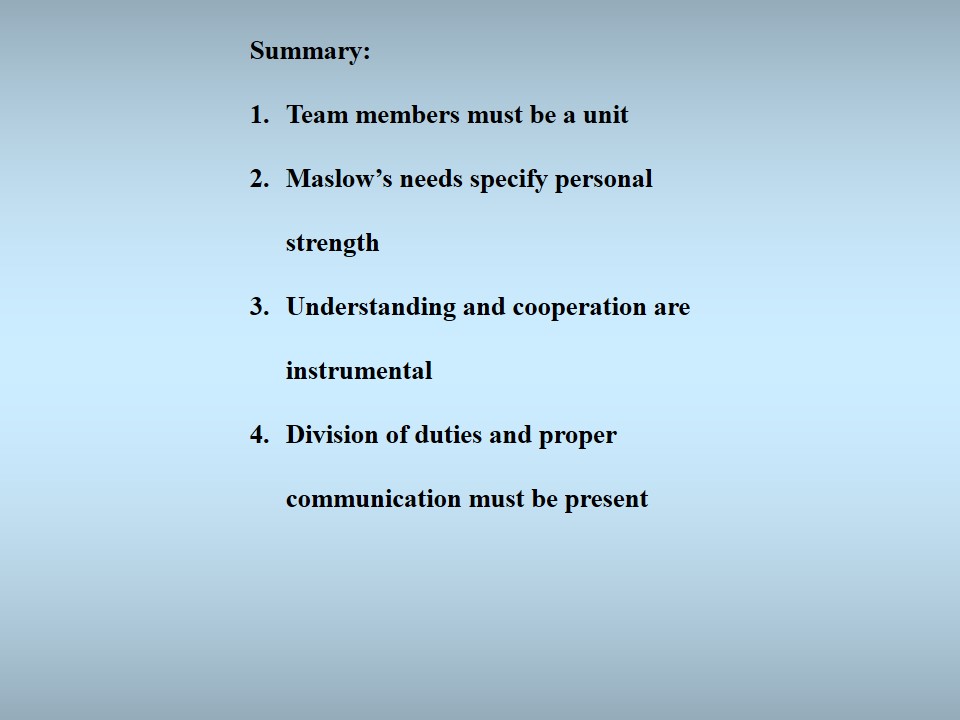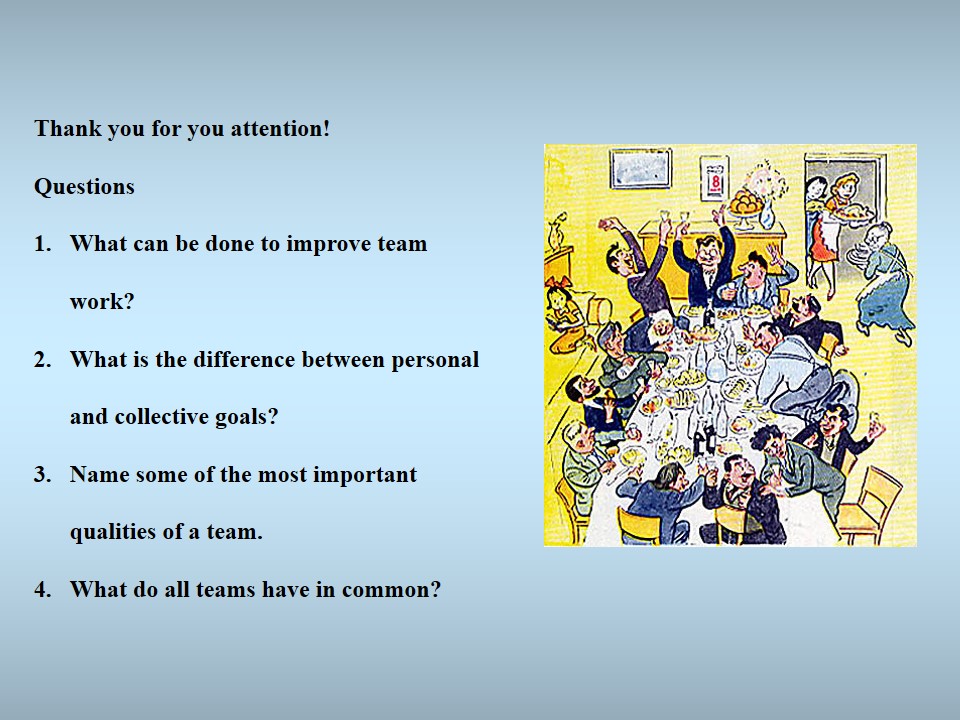Team Needs
In selecting members of the team, a careful consideration of personal attributes is needed. One of the most important criteria is that a person has to be a “team player”, having the ability to work well with others in a collective. If one of the people does not complete their duty, the unit suffers and negates the work done by the others.
As the teamwork requires all sorts of cooperation, a person must be approachable and understanding. There is always a constant relay of information and duties that make up the team.
An easy going and friendly environment makes the team stronger in its attainment of goals, greatly increasing productivity (Yeatts & Hyten 1998).
In a team of 4 members each will have their own unique personality, affecting the level of contribution to the common task. One of the people is a team leader. This person takes his role very seriously and feels responsible for the organization and distribution of duties.
In Maslow’s hierarchy of needs this individual can be considered responsible, meaningful and orderly. As they are willing to do any job and administer as much effort as is needed, they are considered a leader and a strong link in the chain.
This member has self respect, as well as respect for others, which is a sign of tact and ethics.
These are all qualities that are of higher moral development in the pyramid, defining the mental philosophy and psychology of the more advanced functioning.
The second member of the team is willing to participate but only when such involvement is absolutely necessary and there is no way to avoid it. This person is not really interested in the common task and is involved only because he is required to. It can be said that this team member is on the “basic needs” level of the pyramid. There is no need or care to evolve into a more advanced functioning character. The third individual is somewhat similar to the second. He/she leaves everything to the last moment, due to the fact that they are always busy having fun time.
And the fourth person is the most uninterested. They do not value the result of the shared work, but at the same time, want to have biggest reward in a way of a high mark. An individual of such character is not a very well developed personality and has not attained any of the higher spiritual levels (Goble 2004). The characteristics and skills of a person will define their output of work and structure of the work organization (Guion & Highhouse 2006).


Summary
- Team members must be a unit.
- Maslow’s needs specify personal strength.
- Understanding and cooperation are instrumental.
- Division of duties and proper communication must be present.

Questions
- What can be done to improve team work?
- What is the difference between personal and collective goals?
- Name some of the most important qualities of a team.
- What do all teams have in common?

Works Cited
Goble, Frank. The third force: The psychology of Abraham Maslow. Florida, United States: Maurice Bassett Publishing, 2004. Print.
Guion , Robert, & Highhouse, Scott. Essentials of personnel assessment and selection. New Jersey, United States: Lawrence Erlbaum Associates Publishers, 2006. Print.
Yeatts, Dale, & Hyten, Cloyd. High-performing self-management work teams: A comparison of theory to practice. California, United States: Sage Publications, 1998. Print.